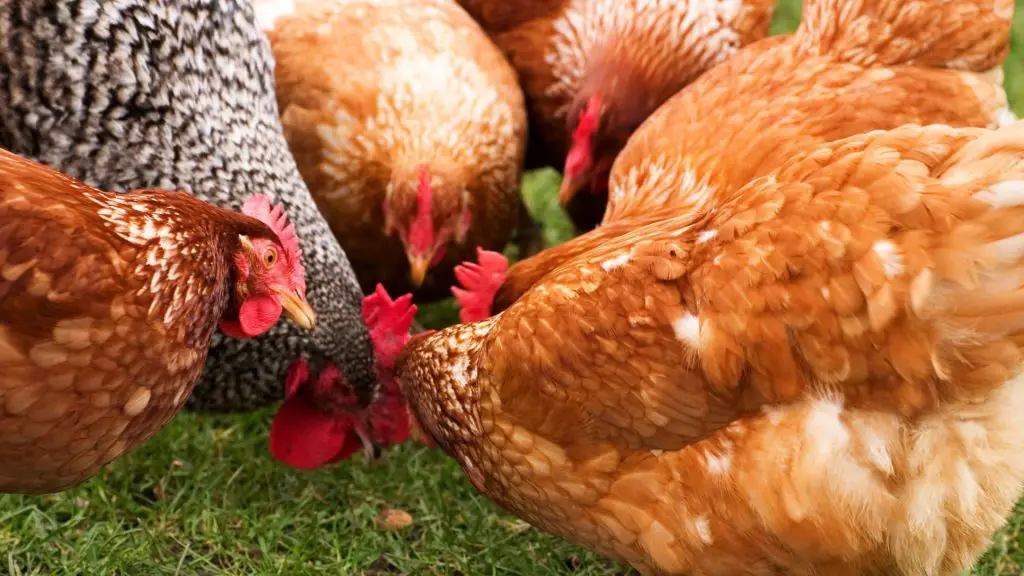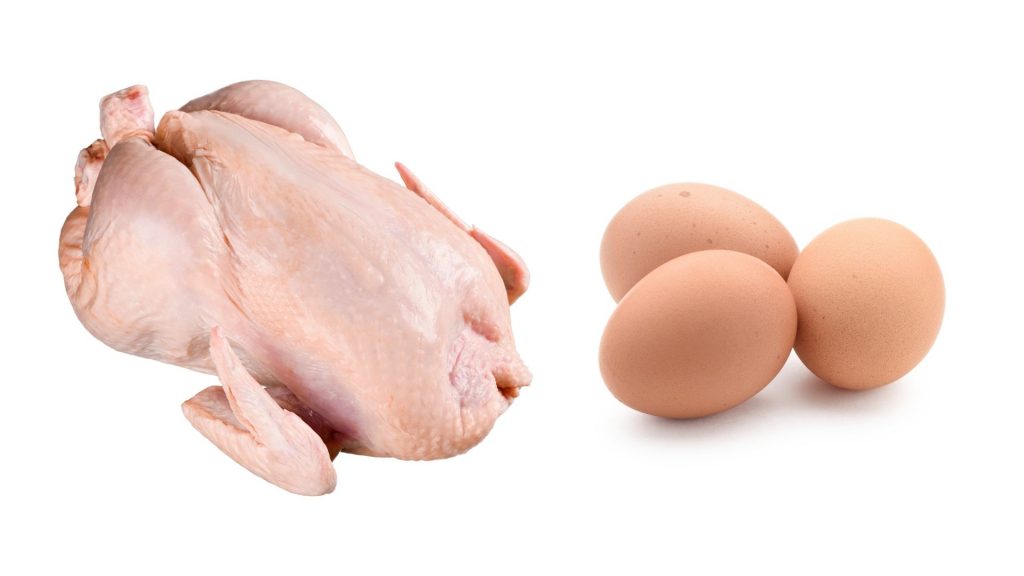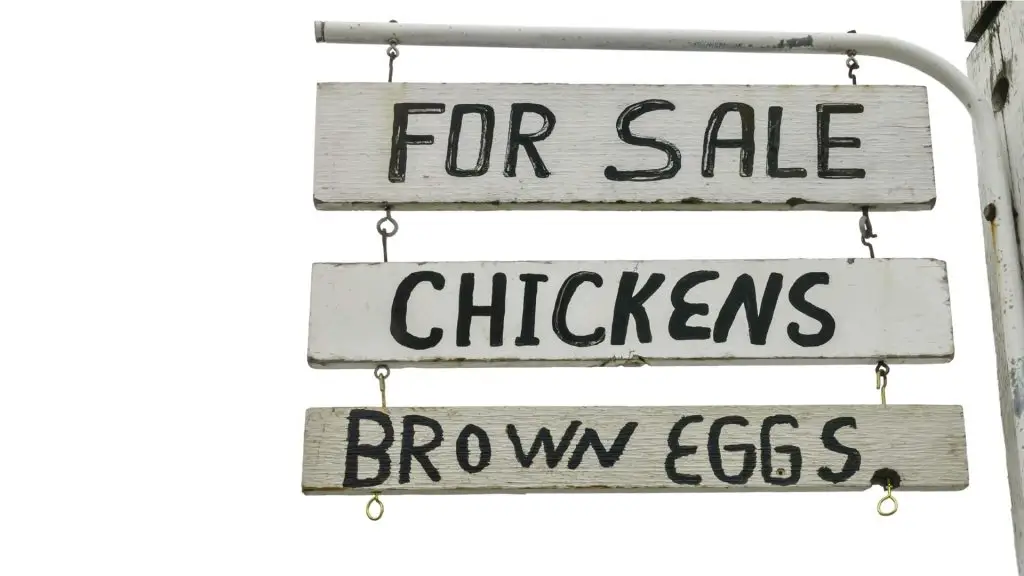Many people are interested in starting their own free-range chicken farm to tap into the steady demand for eggs and meat. What’s the best way to get started?
Here are some steps to take on how to start a free-range chicken farm:
1. Know your state’s laws on farming and agriculture
2. Figure out the financial side of the business
3. Ensure that you have the space to let your chickens roam
4. Feed your chickens plenty of protein
5. Choose the suitable chicken breeds for a free-range farm
6. Learn how to handle eggs and prepare meat properly
7. Start selling your eggs or meat
The rest of this article will discuss the pros and cons of starting a free-range chicken farm and go into a bit more detail on the steps to get started.
Pros and Cons of Starting a Free-Range Chicken Farm

Below are some pros and cons of starting a free-range chicken farm:
Pros
- You might spend less money going free-range: Chickens need a lot of chicken feed and protein to survive, lay eggs, and become ready for consumption. However, going free-range means that your chickens can mainly eat grass, bugs, and other natural food items they might find.
- You get some free pest control: With your chickens roaming around, they will likely eat insects, including some that can harm your plants.
- Your chickens will be healthier: Chickens benefit from roaming around and getting adequate sunlight. If your chickens are walking around freely, they will likely be healthier.
- You won’t need as much space for your coop: Your chickens will likely be fine with all the room that a free-range farm has to offer. You don’t need to worry about regularly creating space in your chicken coop.
- Your chickens will have free shade: You won’t have to worry about providing shade from the sun with a free-range farm. A large tree or any structure large enough to cast a shadow is usually enough.
- You will sell healthier products: Because your chickens will be more active, they will have lower fat and grasses that contain Vitamin A. These vitamins, and the low fat are healthy for your customers as well when they consume your egg or meat products.
Cons
- You will have to watch out for predators: Chickens are usually prey to animals such as wolves, foxes, coyotes, and mountain lions (if you live in a mountainous area). You’ll likely have to invest in a good guard dog or traps to prevent the animals from getting your chickens.
- You will have eggs everywhere: Having lots of eggs all over the farm should ordinarily be a positive. You’ll have eggs to sell or more chickens for meat production. However, it may be difficult to deal with the resulting mess. Free-range chickens will lay their eggs anywhere they can find, making it harder to manage egg production.
- There will be chicken excrement everywhere: You’ll need a plan to scoop up chicken excrement regularly. The waste is great for fertilization, but it’s difficult to collect the droppings in one spot.
- Your garden may be destroyed: Chickens tend to eat anything in their path, and your flowers and plants are no exception. Free-range chickens can be detrimental to your garden if they decide to eat some of your plants.
- You may have some noisy chickens on your hands: Free-range chickens will get used to the free space they have and being active. Once accustomed to this freedom, chickens might become very noisy when you put them back in a coop.
- Your chicken might get sick due to ingesting the wrong food: Chickens tend to eat anything they see; because of this, there will be choking hazards. Your chicken can choke on wires or litter that has come into the yard. Be sure to keep the space clean and to be wary of items that could hurt your chickens.
- Your chickens might dig holes: Chickens like to scratch the ground a lot and end up digging up holes in your garden or land. This will quickly become annoying and hazardous once you start collecting eggs, feeding your chickens, or maintaining the land. Additionally, not only do chickens enjoy digging, but they also like to dust themselves within these holes, which could result in them digging even deeper.
7 Steps to Starting a Free-Range Chicken Farm

This section will go over the crucial steps you should take to begin starting up your free-range chicken farm.
1. Know Your State’s Laws on Farming and Agriculture
The first step in starting your free-range chicken farm is recognizing what your state requires of you regarding running a free-range chicken farm. Every state has different regulations regarding how many chickens you can have, how you should maintain your eggs, how meat should be kept and prepared, and where and how you can sell your chicken products.
Research your state’s farming and agricultural laws by visiting your state’s agricultural department’s website. You can also try calling your state’s agricultural department if you find that you still have questions regarding your free-range chicken farm.
Additionally, it is imperative to follow the federal agricultural laws.
It is also vital that you inform the appropriate government agencies about your free-range chicken farm business to become certified.
Do not skip this crucial step. Not following state regulations can have serious consequences. You may end up in prison or getting fined.
2. Figure Out the Financial Side of the Business
There are plenty of financial aspects to consider when starting a free-range chicken farm. You will need to carefully determine how much money to invest into the business and how much you should charge for your products.
The following are some financial factors to consider when investing in your free-range chicken farm:
- Employee wages: Chances are, you might not be running the farm on your own. When you are deciding on pricing for your goods and products, you need to consider employee wages. Remember, you’ll have to pay competitive rates in line with the local market.
- Cost of delivery service: You’ll likely need a delivery service to bring the chicken products to your customers; you should work out how much you should charge as a delivery fee to your clients.
- Cost of equipment and caring for your chickens: Raising healthy chickens requires having the right system and tools in place to take care of them. Work out how much you need to invest into giving your chickens a healthy environment to grow in.
- Work out how to price your products in line with the quality: The quality of your eggs or meat will be the most significant factor in determining the price of your products. You don’t want to overprice them, but you also do not want to underprice them if they are of excellent quality.
- The cost of the birds: When deciding on what products you will be selling, you will also have to decide what breed of chicken you will be buying. Some breeds are more expensive than others, so you will have to do your own research and invest in the breeds that you will need.
- Determine whether you will be buying or leasing land: The chances are that your house’s backyard will not be enough to house your chickens properly. Leasing land might be more affordable than buying it, but the land is not entirely yours with leasing, and the lease will eventually expire. Evaluate if you have the money or are willing to invest in additional land.
Be wary that most of these items are relatively expensive, and to make a profit, you will have to be dedicated to your business and the promotion of your products.
Additionally, you also need to work out how you can handle any emergency or unexpected expenses.
3. Ensure That You Have the Space to Let Your Chickens Roam

If you plan on having a free-range chicken farm, you will need plenty of room for your chickens.
If you live in an urban setting or have a small backyard, that won’t be enough to allow all of your chickens to walk around freely. Invest in purchasing or leasing some land to house your chickens.
The land needs to be spacious. Be sure that the land you utilize for your free-range chicken farm is clean and easy to maintain.
4. Feed Your Chickens With Plenty of Protein

Though your chicken will likely feed off grass and insects, you should still provide a good diet. Ensure that you are well-informed on the diet of your chickens and how to feed them properly.
Chickens need 20 grams (0.02 kg) of protein a day. Protein-based foods will help your chickens produce eggs and good-quality meat.
Here’s a list of the different kinds of food you can feed to your chickens:
- Pellets
- Mash
- Crumble
- Shell Grit
- Chicken Scratch
- Bok Choy
- Silverbeet
- Endive
- Chickweed
- Cabbage
- Cucumbers
- Melon
- Squash
- Other small fruits and vegetables
Avoid feeding your chickens foods with excessive fat or salts, onions, avocados, chocolates, and even dry beans. These foods can interfere with egg and meat production and can even cause illnesses in your chickens.
Related: What to Feed Backyard Chickens? | Information and Facts
5. Choose the Suitable Chicken Breeds for a Free-Range Farm
Some chicken breeds are more suitable for a free-range farm than others.
You need to choose breeds known for egg production and breeds known to be friendly and tameable.
Chicken Breeds That Are Proficient at Egg Production
- Hybrid chickens (i.e., Golden Comet)
- The Rhode Island Red
- The Leghorn
- The Sussex
- The Plymouth Rock
- The Ancona
- The Barnevelder
- The Hamburg
- The Maran
- The Buff Orpington
- Red Star
- White-Faced Black Spanish
- Chantecler
- Red Sex Link
- Ameraucana
- Barred Rock
- New Hampshire Red
Chicken Breeds That Are Known to Be Friendly and Tameable
- The Silkies
- The Speckled Sussex
- The Buff Orpington
- The Rhode Island Red
- The Cochin
- The Wyandotte
- The Australorp
- Faverolles
- Jersey Giants
- Lakenvelder
- Egyptian Fayoumi
- Brahma
- Cackle’s Red Broiler
- Austra White
- Houdan
- Polish
- Silkie
- Sultan
Extra Tips on Boosting Your Meat and Egg Production
- Give your chickens medical attention when necessary: Healthy chickens make for healthy eggs and production. Be sure to vaccinate your chickens and get them checked for diseases that they could contract.
- Give your chickens extra food once in a while: Protein will help your chickens produce eggs and quality meat. Giving your chickens extra food regularly can help improve your meat and egg production.
- Crossbreed your chickens when possible: Hybrid chickens can produce more eggs and meat.
- Boost egg production during the winter: To increase egg production in the winter, make sure your chickens get enough light, have extra food, and drink warm water. Likely, egg production will still be deficient, but you may still notice a spike after trying to boost egg production.
- Get a rooster for every 12 hens you have: Mating is the main way for your chickens to reproduce. It is recommended to have one rooster for every 12 hens that you buy. You can best use this method by letting the hens and rooster mate and then allowing some eggs to hatch so that you can have more hens. Additionally, you could also create hybrid chickens this way which will be great at egg production.
6. Learn How to Handle Eggs and Prepare Meat Properly

Eggs are fragile. Meat should also be handled a certain way to keep them from becoming rotten. You should know how to handle both before you begin selling them.
When you collect your eggs, keep them at a temperature of 45 degrees Fahrenheit (7.22 degrees Celsius). This keeps the egg from hatching or allowing the growth of bacteria.
Next, get your eggs graded based on the U.S. Grade Standards. If you skip this step, the eggs will be considered “unclassified.”
As a safety and health procedure, discard any damaged, rotten, leaking, or bloody egg. Getting rid of these eggs is essential to protecting your customers’ health and wellbeing.
In regards to prepping meat for selling, you need to know how to kill a chicken, remove the feathers, cut them up, and clean them out.
There are plenty of videos and resources on how to prepare chicken meat properly. Learn how to effectively and efficiently do this in a clean manner before you start selling meat products to potential customers.
7. Start Selling Your Eggs or Meat

Now that you’ve done your research, taken appropriate care of your chickens, and learned how to handle and prepare meat and eggs correctly – you can begin selling products.
Remember to consider the amount of money you spent on feed, taking care of your chickens, and even gas prices for your vehicle. All of these play a role in determining the cost of your products.
You also want to think about the quality of your eggs and how many you are selling per carton. Typically, egg cartons contain a dozen (12 pieces) eggs.
You also want to package your meat correctly. Place the meat in a proper container and be sure that the container is completely sanitary.
Related: How to Sell Chicken Eggs? | Helpful Tips
Summary
Starting a free-range chicken farm can be a long and complicated process. However, knowing the proper steps to take can help you ease into creating a new hobby or source of revenue.
Starting a chicken product business requires knowing what local laws say about starting a free-range chicken farm, knowing the prices of your products, choosing the right chicken breeds, caring for them, and following proper sanitary procedures to prepare the eggs and meat products.
With these crucial steps covered, you can set up your free-range chicken farm.
Related: What to Know About Chicken Farming? | Explained for Beginners!
